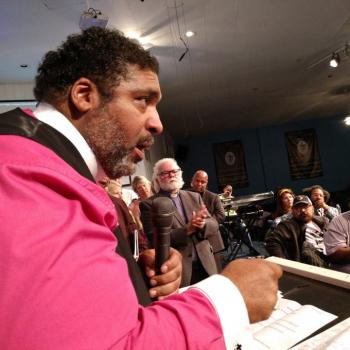I’m emotional about gun violence. I’ll admit it. I am distraught about guns killing children in this country. My emotions after hearing recordings of gun shots and seeing dead children in schools are keeping me awake at night. I have very strong feelings about guns, gun violence, and the need to repeal and replace the 2nd Amendment. And that’s not a bad thing.

I posed a question among friends asking for ideas for how we might go about addressing mass shootings in this country. One person responded that this isn’t the time to have a rational discussion because people are too emotional right now. I disagree.
Emotion is exactly what we need in this conversation.
Philosopher Mary Midgley points out the fallacy in thinking that emotions should play no part in discussions about important issues and ethical dilemmas. In her essay “Emotion, Emotiveness, and Sentimentality” (in The Essential Mary Midgley, Routledge, 2005), she says the assumption is that emotions are detrimental to ethics because people believe:
- Emotions are not rational.
- Feelings are uninformed and compromise our thinking.
- They are subjective rather than objective.
- Emotions are a luxury we can’t afford.
- They are biased and sensational.
But these assumptions are incorrect.
Midgley counters that emotion is absolutely necessary for ethical discernment because feelings have a critical function. They are the “power-house” of ethics.
“Strong feeling is fully appropriate to well-grounded belief on important subjects,” she explains (112). As a matter of fact, we cannot avoid emotions because “all belief involves feeling” (113).
For example, if you believe you have a right to own AR-15s and stock pile ammunition, you obviously have very strong feelings that fuel this belief. Similarly, my belief that the right to unfettered access to guns does not trump my right to life is also fueled by very strong feelings. What we need to do is understand the emotions that compel us to take a particular stance. Even more important is learning to discern if those feelings are being manipulated or used by those in power to maintain their control or push a certain agenda.

The question is not whether emotion should inform our discussion, says Midgley. The question is this:
Is the use of emotion suitable?
In other words, if an appeal to emotion is done for the wrong reasons or through questionable methods, then it is not appropriate.
For example, propaganda uses emotion to sway people in a manipulative way. The NRA – and the politicians who are paid by them – are masters at using propaganda. Their consistent messaging to gun owners is: “They want to take away your guns, your freedom, your ability to protect yourself and your family.” This plays on the fears of a certain segment of the population. This, in turn, compels those folks to act and vote in certain ways. The end result is that the gun industry reaps enormous financial gains from people purchasing more guns. And politicians (including President Trump, whose campaign enjoyed a $30 million investment from the NRA) who block measures to regulate guns are rewarded and upheld in their positions of power by the NRA.
When supporters of the gun industry and gun culture attempt to cast aspersions on those who want common sense gun regulations such as stricter background checks and bans on assault rifles, they use the tactic of calling them “too emotional.” Sometimes it’s overt, sometimes it’s subtle. But the underlying accusation is that we’re not thinking straight because our emotions are clouding our judgment. The aim is to silence us, shame us, question our intelligence, and shunt attention away from what’s really at stake – the lives of children, women, and men who are mercilessly gunned down every day in this country. 315, to be exact.
There is also a gender aspect to the false divide between emotion and reason.
Emotions are disparaged because they are associated with females. The common belief is that women cannot be trusted to make important decisions or even have a voice at the table because they are not rational. Men are believed to be “sensible,” while women get “emotional.”
Here’s what’s wrong with that thinking.
Social constructs make emotion gender-linked, which is a fallacy. Men, in fact, experience just as much emotion as women but express it in different ways. By the same token, women use their intellect just as much as men, and express it in a multitude of ways. But men have a great deal at stake in maintaining the narrative that women are not to be taken seriously because of their emotions.

For example, when women speak out about rape and sexual abuse they are often accused of being “hysterical,” overly emotional, and, thus, not to be trusted. But the #MeToo movement has shown us that the ulterior motive of denigrating emotion is to silence women and shame the victims of abuse. This serves to protect the power of predators, rape culture, and oppressive patriarchy.
When there is a heated discussion about an important issue, and those in power accuse others of being too emotional, we need to ask an important question:
What is the motive of the person(s) telling us to “calm down”?
What is the end game of dismissing those emotions? If someone is trying to raise legitimate concerns and others are trying to downplay them, be suspicious – there may be an ulterior motive.
- For example, when the fossil fuel industry and its proponents accuse scientists and environmentalists of being “alarmist” about climate change, be suspicious. There is an underlying motive, which is to protect their financial interests.
- Similarly, when blacks are denigrated for expressing anger at police brutality, be suspicious. The ulterior motive is racially charged and aimed at keeping people of color submissive.
And when it comes to parents like me desperately trying to protect our own children from being killed by guns, don’t even bother accusing me of being “too emotional.”
Such an accusation is a red herring. It’s a distraction from the real issue that we’re trying to address – the monstrous, immoral, unethical atrocity of the gun culture in this country that is killing thousands of people every year.

As Midgely reminds us: “Feeling is not going to take us out of the moral universe. It is not possible to keep two independent systems of values – one aesthetic or emotional and the other rational or moral – and prevent their ever meeting.” (121) Rather, feeling is integral to determining what is right.
Feelings are not a luxury, they are a necessity for morality.
So you can be sure when it comes to protecting those most vulnerable, including my own children, I will be emotional. Those feelings are exactly what we need to find our moral courage and take action for the common good.

Leah D. Schade is the Assistant Professor of Preaching and Worship at Lexington Theological Seminary (Kentucky) and author of the book Creation-Crisis Preaching: Ecology, Theology, and the Pulpit (Chalice Press, 2015). She is an ordained minister in the Lutheran Church (ELCA).
Twitter: @LeahSchade
Facebook: https://www.facebook.com/LeahDSchade/.
See also:
It’s Time to Repeal and Replace the 2nd Amendment
Preventing Gun Deaths; Tell Me Just ONE Thing You Will Do
Worshiping the Gun God is Killing Us
On the 8th day, God Created Guns: A Reading from the Gun Bible
315 Today; A Poem about Gun Violence
Abraham and Isaac, Guns and God













